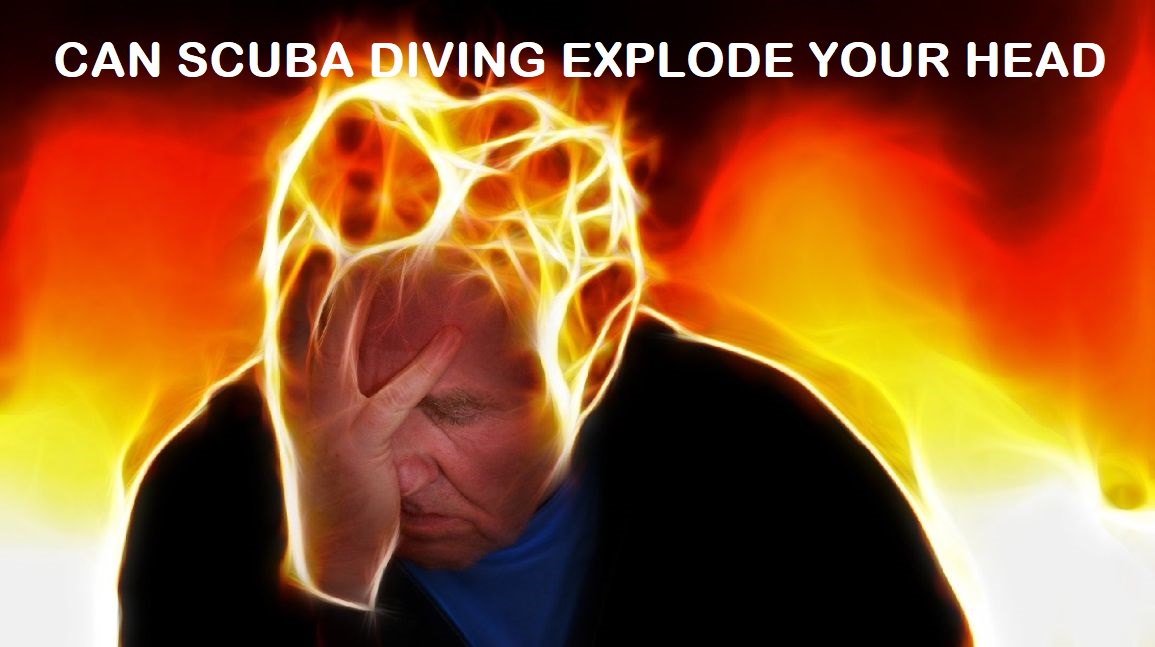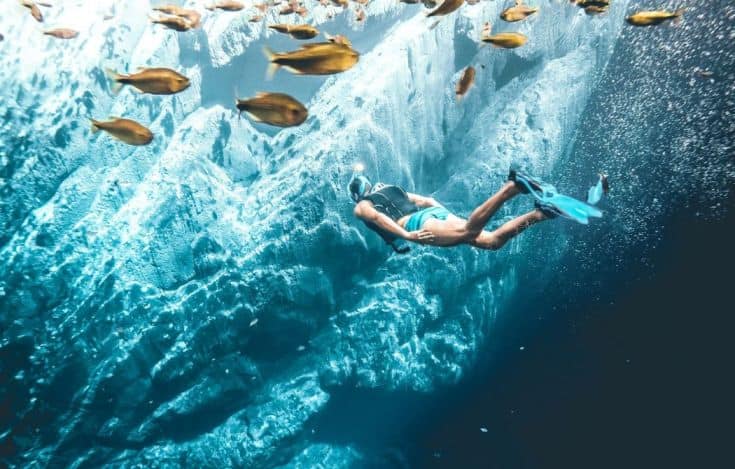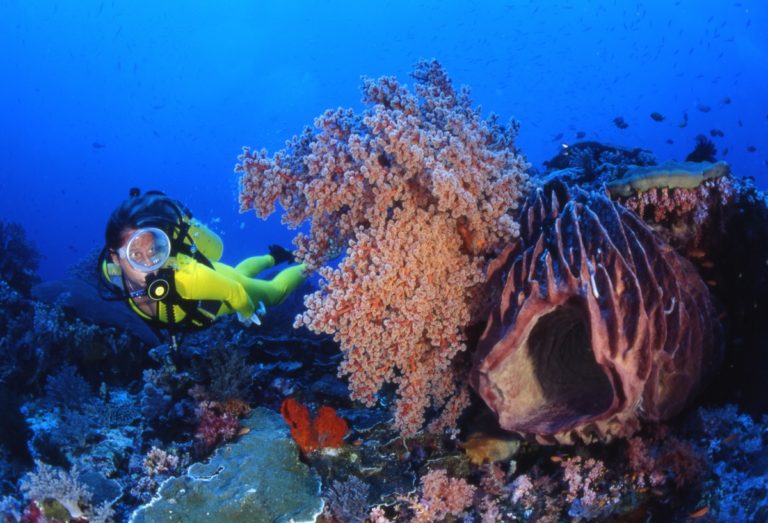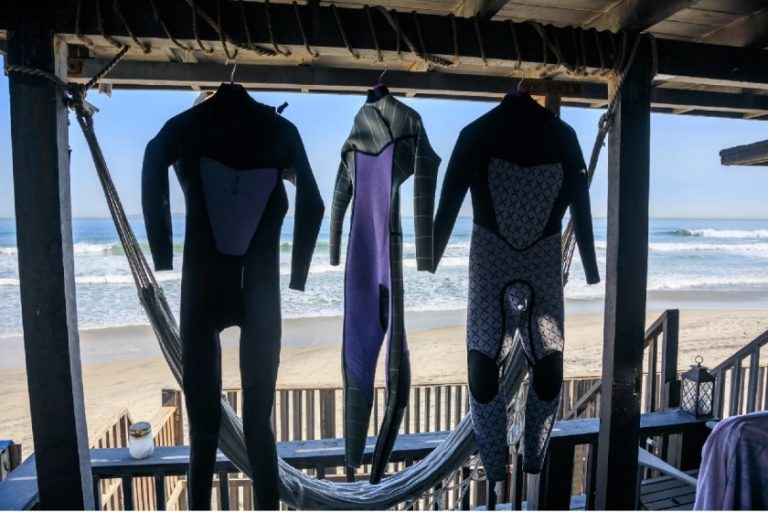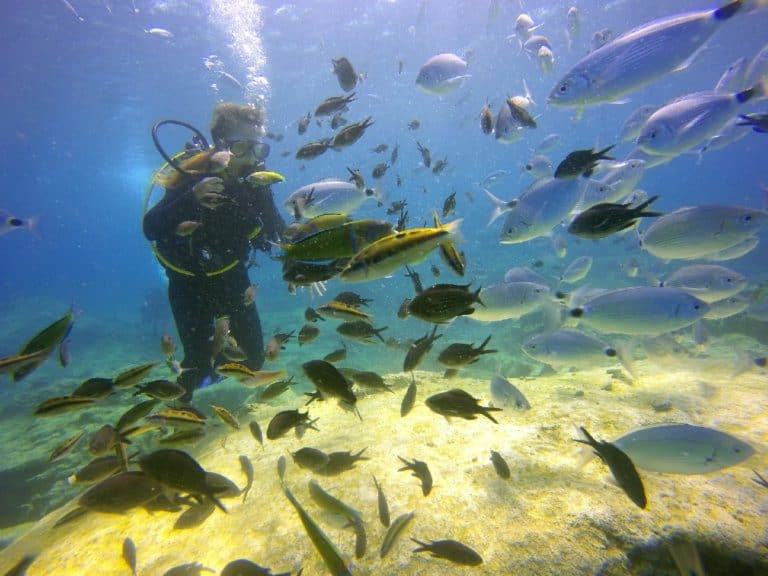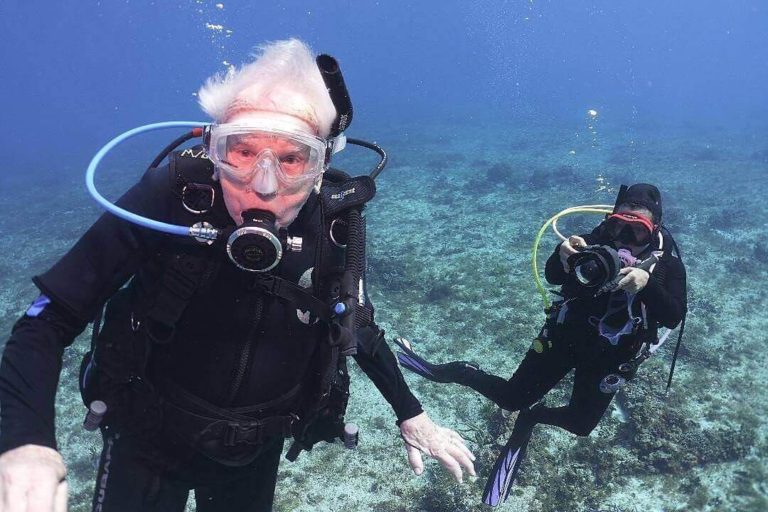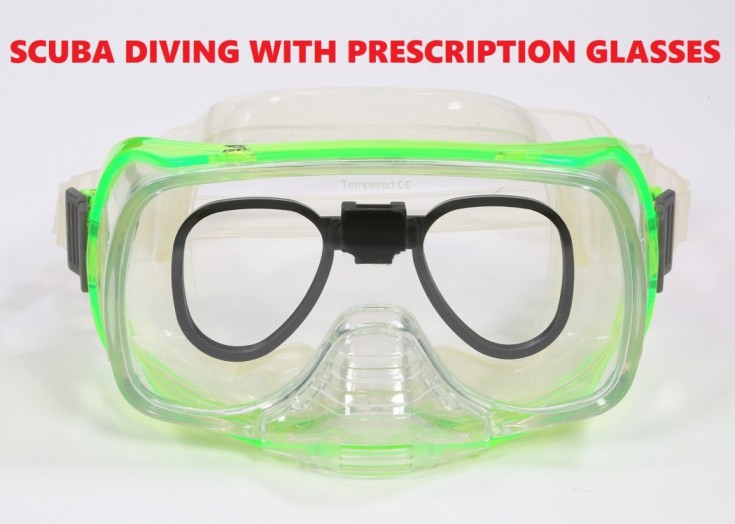Can Scuba Diving Explode Your Head
Headaches after diving are quite common among scuba divers. In many cases, the headache will clear a few hours or within a day after the dive. However, in a few cases, the headache can persist leaving you with strong pain that feels like your head is about to explode. If this is your first time experiencing this you may wonder can scuba diving explode your head?
No, a headache after scuba diving will not explode your head. The two main reasons why a headache after diving feel like your head is about to explode are due to carbon dioxide intoxication and decompression sickness/illness. Other factors include sinus squeeze, tension headaches, migraines, cold, dehydration, mask squeeze, and tension around the neck from carrying an air tank or too much pressure from the gear.
As mentioned before, most headaches will clear within a few hours after diving or within 24 hours. If you experience severe headaches that seem to get worse as time progress, it’s best to consult a doctor familiar with diving injuries.
Divers experiencing headaches before the dive are highly advised to cancel the dive until they feel much better. A throbbing headache can prevent you from equalizing properly causing more complicated diving injuries. It is quite difficult to focus or even enjoy scuba diving with a bad headache.
In this article we’ll look into scuba diving and headaches that follow after a dive, some tips to prevent developing a headache after a dive and so much more.
Keep reading to learn more.
Will Scuba Diving Explode your head
NO, scuba diving will not explode your head.
Many first-time divers experience headaches after the first diving session due to various reasons. These may include anxiety about being underwater which causes the divers to clench their jaws, stiffen their muscles or hold their breath.
All these activities can result in retaining too much carbon dioxide which is known to cause headaches. In addition, these activities can lead to developing decompression sickness among other diving injuries.
Scuba diving as a recreational activity has very low chances of causing your head or body to explode. As divers ascend they make safety stops to help the body release excess nitrogen and other gases inhaled. These stops also help rest the body to surface-level pressure.
It would actually require a very high amount of pressure to build up in the head causing an explosion. A regular scuba diving air tank lasts 15 – 20 minutes, during this time the diver makes the decompression stops making it impossible for pressure to build up in the body.
While scuba diving itself won’t cause your head to explode, it’s important to always remember that your behavior underwater can cause headaches or diving injuries.
Why Do I Feel Light-Headed After Scuba Diving
Changes in pressure, dehydration, or pressure differences within the ears can cause a light head feeling after scuba diving.
Failing to equalize during an ascent or descent can cause imbalanced pressure in the ears. Upon surfacing a diver can feel lightheaded or experience disorientation.
The difference in pressure underwater and on the surface can also cause this feeling especially if the diver makes a fast ascent with few safety stops than what is required.
Staying hydrated before scuba diving is very important. Avoid coffee or any other diuretics that tend to leave you dehydrated. Diving during the summer or in tropical waters can also leave you feeling more dehydrated than usual. Always carry some water on the dive boat to keep you hydrated after the dive.

Can Scuba Diving Cause Migraines
No, scuba diving cannot cause migraines.
If experiencing a migraine before the dive, it’s advisable to cancel the dive until you are clear from the migraines.
Diving with migraines will not increase the severity of the already existing migraine but this doesn’t mean you should go diving.
How to Prevent or Avoid Scuba Diving Headaches
As mentioned earlier, scuba diving headaches can be a result of many factors. Below we’ll look into some of the best practices to prevent these headaches and what to do in case it’s already happening to you after a dive.
Carbon Dioxide Toxicity Headache
During a dive, the body continues carrying out metabolic processes. This means that the tissues are releasing carbon dioxide (CO2) and taking up oxygen (O2) to keep working as required.
If a diver takes in very little air the carbon dioxide levels will gradually build up in the bloodstream and body tissues. Once the CO2 levels are higher than usual the diver is likely to experience headaches after the dive.
Some divers may try to limit the amount of air consumed to increase their diving time. This is dangerous due to CO2 toxicity as well as running out of air while deep underwater.
In case a diver overestimates the amount of time the air can last them then a series of bad decisions will follow as the diver tries to surface for air. The diver can ascend quickly without any safety stops and ends up getting decompression sickness or they may panic and drown.
Another reason divers get CO2 intoxication is due to hyperventilation. If it’s your first time diving or seeing a shark one can easily panic. Panic, fear, and anxiety often cause hyperventilation. The diver fails to breathe out properly meaning CO2 is retained in the body during this period.
To avoid headaches resulting from high levels of carbon dioxide in the body, divers should remain calm and relaxed while diving. It’s also important to continue breathing normally without holding or skipping a breath to conserve air for a longer dive.
Carbon dioxide headaches clear using medications such as migraine medication and analgesics. Remember to pay close attention to your body and the intensity of the headache after taking the medication. If no progress is recorded or the symptoms only get worse seek immediate medical attention.
Decompression Sickness Headache
A headache occurring alongside other symptoms such as joint pain, dizziness, nausea, fatigue, itching, vomiting, body swelling, and muscle aches is a sign of decompression illness or sickness. DCS can onset 30 minutes after scuba diving or after several hours.
If you notice these symptoms happening in your body or to your dive buddies, seek immediate medical attention and also alert DAN. It’s important to keep a record of the activities done after the dive.
In this article, I dived deeper into decompression sickness also known as “the bends” and how to prevent it.
Click on the link to read more here on my blog.

Sinus Headaches
Equalizing or clearing the ears is important in scuba diving. This helps balance the pressure inside and outside the ear preventing ear damage.
When a diver fails to equalize when descending or ascending, then they risk damaging their eardrums and the middle ear.
Some factors that can prevent a diver from properly equalizing include the flu, colds, sinus inflammation, or congestion resulting from mucus production within the respiratory tract.
Once a diver feels they are having a hard time equalizing it’s advisable to abort the dive. If you can’t clear when descending it will be more difficult trying to clear while deep underwater.
In case a diver tries to force equalization then the diver can get a sinus squeeze which is quite painful. Inflammation in the sinuses is also known to cause severe headaches.
Avoid scuba diving with sinus congestion or any other respiratory infections.
In this article, I coved scuba diving while congested, with a cold or flu. Click on the link to read more on this.
Tension or Anxiety Headaches
These are quite common among first-timers or when diving in a new environment. A diver can experience anxiety when in very cold waters causing them to clench every inch of their body from the jaws to the muscles.
This stress from clenching puts a lot of pressure on the body that can result in a headache after the dive. It is also quite difficult clearing the ears when you are tense, breathing properly will also be an issue for you if you can’t relax while underwater.
The best way to avoid these headaches is to relax. Practice being underwater in the pool or simply go diving more often. The more you scuba dive the body gets used to it and with time you can easily relax each time you go diving.
Other Forms of Headaches
Some headaches result from dehydration, how you place and carry your air tank and how tightly you secure your diving gear.
Always stay hydrated before and after the dive and remember to avoid diuretics such as coffee on the morning of the dive.
While everyone wants a snug fit in their gear, avoid securing the mask too tightly that it causes you a headache.
When locking the wetsuit flap around the neck, make sure it is well sealed but not too tight. In addition, avoid tight swim caps, beanies, or scarves. Always make sure you are comfortable and not restricting blood flow around the head, neck, and all other body parts.
Parting Words
Headaches are quite common among scuba divers. The severity differs from one individual to the other and many headaches clear within a few hours after the dive.
Divers can also do self-assessments of activities presiding the dive to rule out other causes of headaches. DAN has a list of questions to look into when trying to figure out what could be causing the headache after a dive.
In case you have a persistent headache that feels like it’s about to blow up your head, seek medical attention immediately.
As seen in this article, scuba diving can give you a mild to severe headache but won’t explode your head. Following the diving guidelines, safety stops, and other measures will prevent developing a headache after scuba diving.
I must indicate this is not medical advice and shouldn’t be taken for diagnosis purposes. Only a certified Doctor can access and treat headaches resulting from scuba diving. This is only meant for general information purposes only.

